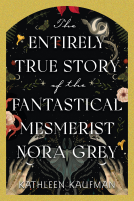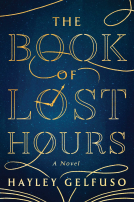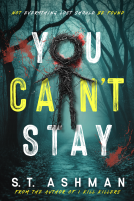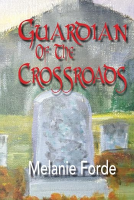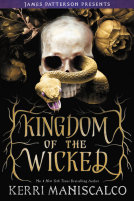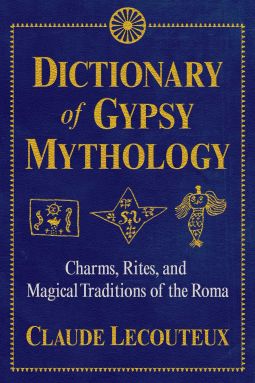
Dictionary of Gypsy Mythology
Charms, Rites, and Magical Traditions of the Roma
by Claude Lecouteux
This title was previously available on NetGalley and is now archived.
Send NetGalley books directly to your Kindle or Kindle app
1
To read on a Kindle or Kindle app, please add kindle@netgalley.com as an approved email address to receive files in your Amazon account. Click here for step-by-step instructions.
2
Also find your Kindle email address within your Amazon account, and enter it here.
Pub Date Jul 10 2018 | Archive Date May 29 2018
Talking about this book? Use #DictionaryOfGypsyMythology #NetGalley. More hashtag tips!
Description
• Presents the origin myths and magical traditions of the gypsies, including their legendary ties to Egypt, animal ancestors, and tree spirits
• Examines the three major settings of gypsy folktales--the forest, the waters, and the mountain--and shows how their world is full of spirits
• Shows how the religious concepts of the Rom testify to a profound syncretism of the pagan traditions and Christianity
Although their own myths and their common name point to Egyptian origins for the gypsies, the Rom, as they call themselves, originated in India, as evidenced by studies of their language. They arrived in Europe in the ninth century and spread across the continent from East to West, reaching England in the 15th century and Scandinavia by the end of the 16th century. A nomadic people, these wanderers were reviled by local populaces wherever they went and regarded as misfits, intruders, foreigners, and thieves.
Drawing on a number of sources never before available outside of Eastern Europe, Claude Lecouteux reconstructs the gypsy oral tradition to provide a comprehensive A-to-Z look at gypsy mythology, including their folktales, rites, songs, nursery rhymes, jokes, and magical traditions. His main source is material collected by Heinrich Adalbert von Wlislocki (1856-1907), an ethnologist who lived with gypsies in Romania, Transylvania, and Hungary in the latter half of the 19th century. He presents the origin myths of the gypsies, legends which form the ancestral memory of the gypsy tribes and often closely touch on their daily life.
Lecouteux explores the full range of supernatural beings that inhabit the gypsy world, including fairies, undines, ogres, giants, dog-people, and demons, and he examines the three major settings of gypsy folktales--the forest, the waters, and the mountain, which they worshiped as a sacred being in its own right. He also reveals how coexisting with peoples of different religions led the gypsies to adapt or borrow stories and figures from these groups, and he shows how the religious concepts and sacred stories of the Rom testify to a profound syncretism of pagan traditions and Christianity.
Complete with rare illustrations and information from obscure sources appearing for the first time in English, this detailed reference work represents an excellent resource for scholars and those seeking to reconnect to their forgotten gypsy heritage.
A Note From the Publisher
This is a PDF file and not available on Kindle
Available Editions
| EDITION | Other Format |
| ISBN | 9781620556672 |
| PRICE | $29.99 (USD) |
| PAGES | 192 |
Featured Reviews
 Tanja F, Reviewer
Tanja F, Reviewer
A compendium of hermetic knowledge that’s as good as Gypsy gold for those outside of Eastern Europe…
Dictionary of Gypsy Mythology by Claude Lecouteux is a comprehensive guide of Romani mythologies and beliefs, containing stories from Roma authorities and a variety of tribes. It is a valuable source for those who wish to learn more about these mysterious people, their history, and culture. The information contained within this book is sourced from a 19th century Ethnologist who spent time living with the Romani peoples. The Roma do not have their own alphabet or written records, thus, all of their stories are based on the oral tradition, which makes this dictionary an invaluable curated archive of their culture.
A discussion on the Egyptian and Indian origins of the Roma is featured throughout, as well as an exploration of the pagan and Christian symbology that has weaved itself into their lives. What I loved is that every god, goddess, animal, mythological creature, folktale, rite, song, and joke was explained within the Roma’s cultural context. This helps the reader understand why they have such beliefs in the first place and how this informs their lifestyle and choices. There are plenty of footnotes and citations listed to support the content of the book, making it both a credible academic resource and an enlightening read.
I am so happy that I got to review this book! My Mother’s side of the family is Romani so I grew up with a lot of stories about their folklore. To this day we still practice bits and pieces of domestic magic and fortune telling, although none of it has been documented. Both me and my Mom started to record it a few years ago so we will always have a record to be able to pass down through the generations. My Romani heritage is not something we as a family like to “advertise” because the stigmas are still extremely strong……not even my Dad who doesn’t have Romani blood approves of my Mom’s heritage. It’s a culture that is misunderstood and is still ostracized to this day. I’m always hunting for the next book about the Roma, and this one was the most in depth and interesting one that I’ve read.
This is a really cool book. Will be a fun reference book for our library.
 Beth B, Reviewer
Beth B, Reviewer
A fascinating peek into a culture that our modern society has romanticized but that we really know little about. Origin myths, causes and cures for ailments and illnesses, celestial myths, folktales and more are all presented here in very readable dictionary-style entries, followed by a few actual folktales. Very interesting read!
 Hillary J, Librarian
Hillary J, Librarian
I requested this book as someone with Roma heritage coming from the Greek and Moroccan tribes. Culturally, since the Roma are a wide and diverse group, I think it would be categorically impossible to really get all the symbolism, all the mythology, etc. etc. into one book, but this tome does a good job.
Lots of this mythology however, is as relevant to modern Roma as ancient Greek mythology is to modern Greeks, so it shouldn't be read as "this is what they believe now," because they mostly don't. It is, however, a fascinating study of a people who are often marginalized, ignored, and until recently, often killed and relocated with impunity. Books like this help to see these people as more than just obscure traveling groups and more as humans with a rich culture.
My one complaint stands with the title of this book. While I do not personally believe that the word is as offensive as say, the N-word, it is still offensive and probably would be best suited to being changed to avoid controversy so that readers can focus on the book instead of the terminology.
 Librarian 431790
Librarian 431790
A very interesting books about some aspects of a quite unknown culture.
Really interesting and informative.
Many thanks to Netgalley and Inner Traditions
 Marie A, Reviewer
Marie A, Reviewer
I have always been interested in the culture of the Roma Gypsy. This is a comprehensive dictionary from A to Z with legends and stories included.. There was a lot of research done obviously to be able to have so much pertinent information. I am very excited to be able to read this book. I received this book from Net Galley for an honest review.
 Silvia P, Reviewer
Silvia P, Reviewer
As a Romanian with almost no knowledge about gipsies besides the stereotypes shared by parents grandparents this was a revealing yet fascinating book. It made me curious to find out more about this culture that is so marginalised in my country. It was both a shock and a delight to see that most myths in traditional Romanian folk stories are actual of gipsy origin.
 Teresa N, Reviewer
Teresa N, Reviewer
Whether you know much about the Roma Gypsy or their mythology this book is very interesting. It is not a story or a text book. It is just as the title says a dictionary. The book goes alphabetically of the people, places, items, time all believed in the mythology. Each entry has a short story, legend, or just the place in the myths, or who the person was. There are some drawings and poetry also. This is a very interesting book. It is a short read also only 195 pages. When you have finished reading you will have a better understanding Roma Gypsy mythology, and if you knew nothing abotut it before reading you will be wanting to find out more about the culture afterwards.
I received this book from the Author or Publisher via Netgalley.com to read and review.
Specifically an A-Z dictionary for Gypsy mythology and a good introduction for terms, this work would serve best as a complement book to historical and origin stories in narrative form or a starting place for more in depth research. A helpful student text.
Net Galley Feedback
 Ellen K, Librarian
Ellen K, Librarian
The Roma culture is vast and complex representing the diversity of the people who make up this group. While the term “gypsy” might be considered offensive to the Romani, unfortunately it is the misnomer that is commonly used to refer to this population. I feel that is why Claude Lecouteux used the title The Dictionary of Gypsy Mythology: Charms, Rites, and Magical Traditions of the Roma.
While this book is chiefly a dictionary, there is an interesting introduction and a section at the end of the book which includes relevant folktales (The Great Flood, The White Hind, The Mountain of Cats, the Fiancée of the Phuvus). The content has been thoroughly researched with footnotes and references to substantiate the text. However, much of the information is based on the works of the ethnologist, folklorist Henrich von Wlislocki who traveled throughout parts of Europe in the late 1800s, collecting the oral Roma traditions and then adapting the stories for a Non-Romani audience.
Lecouteux shares with us the belief that the Roma actually came from India, not Egypt, based on the linguistical patterns of their language, although these nomadic people traveled throughout Europe starting in the ninth century reaching Scandinavia by the 1500s. The author, a professor at the Sorbonne specializing in Medieval history, doesn’t deal with the sordid details of the treatment of these people by the residents of the towns they visited or settled, but focuses mainly on the cultural aspects of this society via an alphabetical listing of various relevant terms including lengthier mythological stories. There is a wealth of illustrations, a list of transcriptions and pronunciations, and various songs, nursery rhymes, and magical traditions interspersed throughout. At times the text is choppy but that may be due to the translation by Jon E Graham or by the decision to use “authentic wording”.
An extensive bibliography plus recommendations for books of possible further interest for the reader round out this comprehensive tome.
While I would have appreciated a smoother text and even more of the folklore, this is definitely a much needed addition to the neglected subject of the Romani People so I’m giving it four stars.
A thank you to Netgalley and the publisher, Inner Traditions, for providing this ARC in exchange for an honest review. This review also appears on Goodreads and my blog, Gotta Read:
https://ellenk59.wordpress.com/2018/08/08/the-dictionary-of-gypsy-mythology-charms-rites-and-magical-traditions-of-the-roma-by-claude-lecouteux/
Readers who liked this book also liked:
Keith Martin; Konstantinos Mersinas; Guido Schmitz; Jassim Happa
Business, Leadership, Finance, Computers & Technology, Reference


